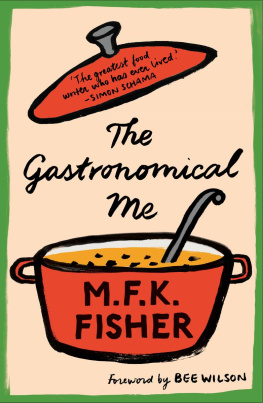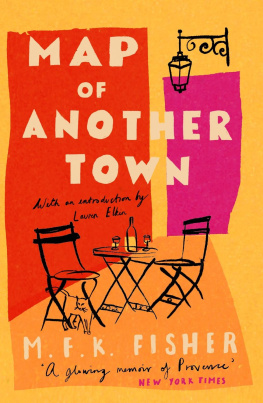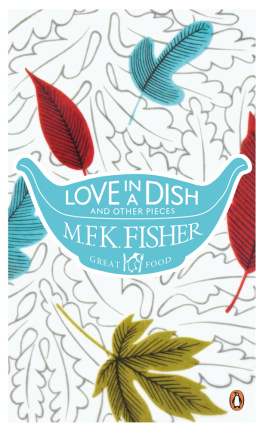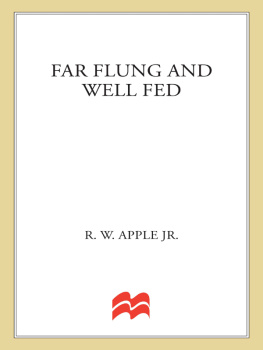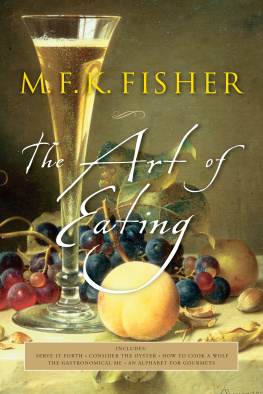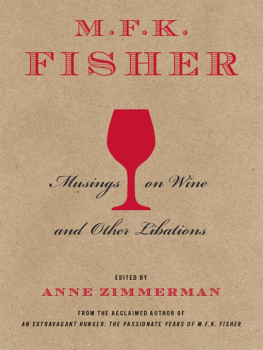The greatest food writer who has ever lived. Simon Schama
Poet of the appetites. John Updike
I do not know of anyone in the United States who writes better prose. W.H. Auden
She is not just a great food writer. She is a great writer, full stop. Rachel Cooke, Observer
Her writing makes your mouth water. Financial Times
To be happy you must have taken the measure of your powers, tasted the fruits of your passion, and learnt your place in the world.
The problem with most food writing is that it is too much about ingredients and not enough about appetite. Every time I return to M.F.K. Fisher and she is the most re-readable of all prose stylists I am struck that she tells you all the vital stuff that other food writers leave out. Her books are full of private cravings.
Many writers will give you a fine description of dinner but forget to tell you what it meant to the people at the table. Not Fisher. Meals, for her, are not just about what was served, but who ate it and how it made them feel. Her dinners are about disappointments, the passing of time and the thrill of laughing uncontrollably over gin and toast and caviar with a secret lover. She can be so bracingly personal that other food writing seems euphemistic by comparison. When she writes of hunger, as she famously explains at the start of this book, she is really writing about love and the hunger for it and warmth and the love of it and the hunger for it and it is all one.
Mary Frances Kennedy Fisher (19081992), whose work has never been as well known in Britain as it deserves, was the opposite of those gourmand restaurant critics for whom food is to be coldly appraised on aesthetic grounds. The American writer Clifton Fadiman once said that what made her great was that she wrote not as a specialist but a whole human being, spiky with prejudices. The only downside of this wonderful book, for a modern audience, is its title. The word gastronomical has not worn well since the 1940s and to anyone who has read Harry Potter, it sounds a bit like Magical Me by Gilderoy Lockhart. You fear that you are going to be given lectures about pretentious meals by a tedious snob who only cares about her own stomach. In fact, this is a series of wise, funny and profound interludes showing how food is woven into the texture of a persons life, from a picnic of peach pie eaten with a beloved father to the champagne a man drinks with abandon when he knows he will soon die.
Fisher first learned to write from her father Rex Kennedy, who ran The Whittier News in California. As a teenager, Mary Frances worked as a stringer for Rex, sometimes writing up as many as fifteen human interest stories a day on an old Remington typewriter. Her newspaper experience taught her to write fast and not to be boring. To the end of her long writing career, she never rewrote or edited her own prose, according to her biographer Anne Zimmerman.
But she only fully found her food voice which is like no other in her twenties.
It was the result of France and of love. With her first husband, Al Fisher, an academic, she lived in Dijon for three years and discovered ways of eating she had never imagined, from dark glossy sauces to pungent cheeses and small, succulent cauliflowers which she cooked with heavy cream. When she and Al returned from France to live in Laguna, California, she met someone whom she loved even more than Al, to whom she wanted to confide, and with whom she wanted eventually to share, all the joys and secrets of French eating. He was a married artist called Dillwyn Tim Parrish, who became her great love. Tim was memorialised in her books including this one as Chexbres.
Fishers first book, published in 1937, was Serve it Forth. It was a collection of food essays, on mostly historic themes, many of which had been written as amuses-bouches to read out loud to Tim for his amusement. This partly explains the thrilling candour of her tone. In that first book, she wrote as if to a lover, with whom she could be free and frank. Theres also an air of trying to impress us with her precocious wit. There are two questions which can easily be asked about a potato: What is it and Why is it? starts one of the essays. She continued with this candid and scholarly voice in Consider the Oyster (1941) and How to Cook a Wolf (1942). The latter was a book about how to eat well in wartime, with tips not just on frugal vegetable cookery but How to Rise Up Like New Bread and How to Comfort Sorrow.
By the time she wrote The Gastronomical Me, in 1943, everything had changed and Fisher was franker still. Two years earlier, her beloved Tim had shot himself at the age of 47, after suffering from three years of debilitating pain from Buergers disease. The Gastronomical Me was written in a white heat during ten weeks holed up in a boarding house in Altadena, California while she was pregnant with her daughter Anne (whose fathers identity she never revealed). According to Zimmermans biography of Fisher, she told her friend, the critic Larry Powell, that she was worried because it was the first thing Ive ever written, really, without Tims cold judicial ear to listen.
As a result, this collection of reminiscences of her life with Al in Dijon and with Tim in Switzerland and much else besides was more personal than anything shed written. She is no longer trying to impress anyone. We are being addressed by a grieving pregnant woman in a hurry who doesnt give a damn about the social niceties any more, insofar as she ever did. She tells us of mad Ora, a cook who uses her kitchen knife to slice her wrists and throat. The astonishing final essay, Feminine Ending, recounts the life of Juanito/Juanita, a Mexican mariachi singer, who sings wild, cracked songs and wears dresses and hungers after Fishers brother David.
On reading The Gastronomical Me, one of Fishers friends remarked that she ought not to have written so much about herself. Its a stupid comment to make about an autobiography, but you can see why some in the 1940s might have been shocked at the way she lays herself bare. In one of the chapters, she tells how she swallowed her first raw oyster at a school dance before dancing in the arms of the most intelligent girl in the school, Olmstead. Her shock at the oyster and her wondrous lesbian flirtation with Olmstead are presented as two equally new experiences, the one neither more nor less startling than the other.
Had Fisher wanted to, she could surely have left all these personal details out and stuck to writing about food. No one was better at pure, sensuous food description. This book will make you hungry for the greyish-pink fuzz on Fishers grandmothers strawberry jam (the first thing she remembers tasting and wanting to taste again) and the way she cooks peas in a heavy casserole swirling them in butter and their own steam. Its a mark of Fishers genius that she can even make something remarkable out of the first potato chips she ever eats in Europe, on her way from France to Germany in the 1930s. These crisps are not uniformly golden like the American ones in bags, but light and dark, thick and paper-thin, fried in real butter and then salted casually with the gros sal served in the country.
But to Fisher, it would be dull to focus too much on the potato chips without also talking about the appetite of the woman who eats them herself in a strange, private orgy, like a pregnant woman craving chocolate-cake-at-three-in-the-morning (which, at the time of writing, she was). Those of us who love her above all other food writers must be grateful that she ignored her friends advice. There is a liberating generosity to the way she exposes those private appetites that most of us struggle to hide. No one was ever so confident in her own hungers or so determined in her quest to satisfy them. To read her is to feel that we, too, should be a little bolder in feeding ourselves. After Chexbres dies, she tells us she sometimes goes to the best restaurant I knew and [orders] dishes and good wine as if I were a guest of myself, to be treated with infinite courtesy.

